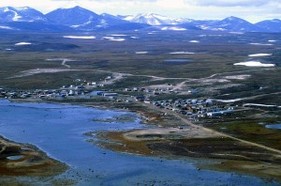Clyde River, Nunavut

Year(s) Funded: 2010-2011
Topic Area: Knowledge Sharing / Education Contact: Shari Gearheard, Illisaqsivik Society Partners: Illisaqsivik Society, Lakehead University Website: http://ilisaqsivik.ca Title: Arnait Project: A Women’s Retreat on Climate Change and Health
Action: This project builds upon an existing project funded by the Social Sciences and Humanities Research Council of Canada which was carried out in the Inuit communities of Clyde River and Qikiqtarjuaq, Nunavut, titled the “Arnait Project: Inuit Women and Subsistence: Social and Environmental Change”. An on–the-land retreat brought together women from Clyde River and Qikiqtarjuaq to share their research, experiences, and knowledge. The entire retreat was based on traditional knowledge, with Elders taking charge of project planning and the design of retreat activities. The retreat allowed women from both communities to share and discuss their own observations of social and environmental change, as well as strategies for adapting and capacity building. Results: One of the very interesting findings of the retreat was learning the women’s approach to linking climate change and health. Their retreat workshop topics reflected this with discussions such as ‘how to be a good person’ and ‘what we should be teaching young girls’. In order to be resilient to both environmental and social changes women need to be strong and healthy and have strong and healthy families. To adapt to any changes they face in the community, society, culture, and environment, the core of who they are needs to be healthy. The land retreat was critical to give women that dedicated time to reflect, have personal meditation time, connect with each other, and connect across communities. While “Being a good person” might not seem to fit within a climate change centred project, it is precisely by being a good, healthy person, in a healthy community, that will enable individuals and communities to deal with any change that arise. It was this core belief that created the foundation for the women’s design of the retreat. Surveys conducted with women regarding their observations of climate changes revealed that women ages 16-20 and 21-30 did not have many observations about changes in the environment, in animal condition, and remarked that they do not go out often or that men would be better to ask. Women ages 41 and over, however, did have several observations about the changing conditions of animals and of the environment. These women are more likely to go on the land, and also some spent their childhood on the land so have a greater understanding and context about environmental changes. Outputs: Qualitative and quantitative data was collected through focus groups, discussions, and surveys with the women. Data collected relates to the resources that women need in their lives and how they share resources among each other and within the community. |
